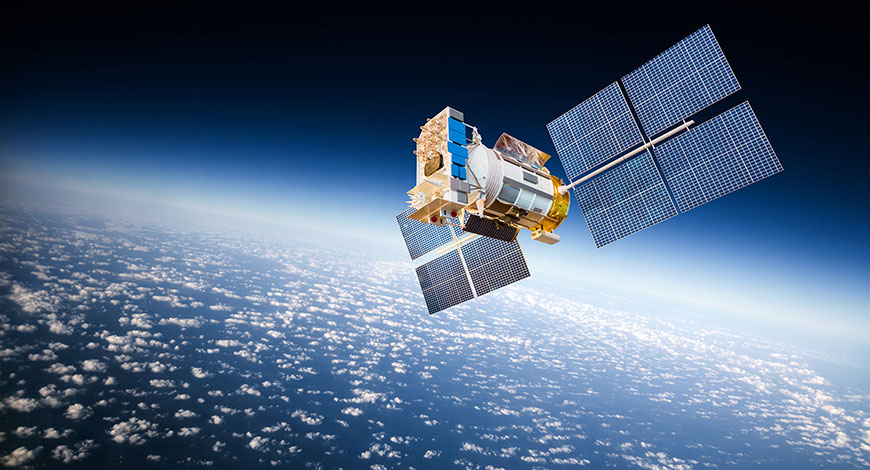While the country is making efforts to advance its space program with help from China, economic challenges and climate change related disasters raise questions about its sustainability.
Shome Basu
In 1947, Pakistan emerged as a new nation, gaining independence from British rule along with India. India was four times larger than Pakistan and dominated the region as the two countries were geographically separated by 2,000 kilometres, with one to the west and the other to the east. This partition resulted in a massive bloodshed claiming hundreds of thousands of lives, coinciding with the end of World War II and significant events like Adolf Hitler’s death and the bombings of Nagasaki and Hiroshima.
This post-war era marked the beginning of the Cold War, pitting the capitalist United States against the communist Soviet Union. India’s Prime Minister, Jawaharlal Nehru, pursued a policy of neutrality, aligning with like-minded nations while maintaining relations with the USSR and communist China. Meanwhile, Pakistan forged a partnership with the USA.
In 1961, during a state visit by Pakistan’s President Ayub Khan to Washington, President Kennedy hosted him at his residence along the Potomac River. This visit symbolized a new chapter in their relationship. Jacqueline Kennedy personally hosted the dinner at Mount Vernon, where Khan’s daughter represented the First Lady of Pakistan. Among the attendees was Pakistan’s physicist, Dr. Abdus Salam, who would soon find himself at NASA.
Salam entered into a space collaboration pact with the United States. During November 1961, NASA established a space centre known as the Flight Test Range in Balochistan, with Salam assuming the role of its inaugural technical director.
In the same year, Pakistan embarked on its own space program, known as SUPARCO (Space and Upper Atmosphere Research Commission). In 1962, SUPARCO successfully launched its first rocket, Rehbar I, with assistance from NASA, making Pakistan the third Asian country to achieve this feat after Israel and Japan.
However, as the years passed, SUPARCO faced challenges. The government redirected its resources and scientists to the atomic bomb project, diminishing the focus on space exploration. The agency’s priorities shifted from independent research to countering India.
Concurrently, Pakistan disowned Dr. Abdus Salam owing to his Ahmadiyya faith, missing the opportunity to benefit from his scientific expertise. These developments left SUPARCO reliant on foreign assistance.
In the 1980s and the 1990s, SUPARCO faced further setbacks with funding cuts and military generals taking control. Pakistan’s focus shifted from space technology to nuclear arms development. This shift coincided with the USSR’s involvement in Afghanistan and Pakistan’s support for the mujahideen, while India made strides in space technology with Soviet assistance.
In Science Direct publication, SUPARCO and Pakistan’s space program were highlighted. In July 2011, the National Command Authority granted its approval to the Space Programme 2040.
This ambitious program aims to launch five GEO (Geostationary Orbit) and six LEO (Low Earth Orbit) satellites by the year 2040. The inception of Vision 2040 coincided with the successful launch of Paksat-1R on August 11, 2011. The outlook for Pakistan’s space program appears promising and on a path toward prosperity.
Pertinently, Pakistan has yet to establish a space-related legislation. Even SUPARCO lacks the constitutional and legal authority to oversee and manage the nation’s space endeavours. The trajectory of Pakistan’s space aspirations is intricately tied to Vision 2040, and the most formidable hurdle on this path involves the development of a robust and all-encompassing legal framework to govern space activities effectively.
While Pakistan is a signatory to all five UN treaties concerning outer space, it has not taken the necessary steps to enact legislation that would encompass the obligations outlined in these international agreements.
The Cold War further complicated Pakistan’s space program. While the USA initially sought to use Pakistan’s satellite program for surveillance over China and India, Pakistan missed the opportunity to develop its space capabilities fully.
In 2011, Pakistan’s National Command Authority approved Space Programme 2040, aiming to launch several satellites. Despite this, Pakistan lacks a comprehensive space law and the legal framework needed to regulate its space activities, presenting a challenge to Vision 2040.
Many Pakistanis believe that if Dr. Abdus Salam’s space program in SUPARCO had continued, Pakistan could have made significant strides in space technology. However, as of now, Pakistan lags far behind India in the space race, with India’s numerous satellites and ambitious missions.
Having five operational satellites, Pakistan is dwarfed by India which boasts of 53 satellites, along with achievements like the Chandrayan I and III missions and the Mars excursion known as Mangalayan. India undoubtedly has established itself in the league of superpowers in the space arena.
While Pakistan is making efforts to advance its space program with help from China, economic challenges and climate change related disasters raise questions about its sustainability.
While space exploration missions are undeniably important, the world is confronted with far more urgent and critical challenges at this juncture. Climate change, hunger, and the alarming polarization among people are existential threats that demand our immediate and concerted attention. These issues demand more attention than the pursuit of space dominance, as they pose existential threats to humanity.
The words of Bertrand Russell, who predicted the dangers of the arms and space race, serve as a sobering reminder of the urgent need to address these pressing global concerns
Shome Basu is a New Delhi-based senior journalist.
